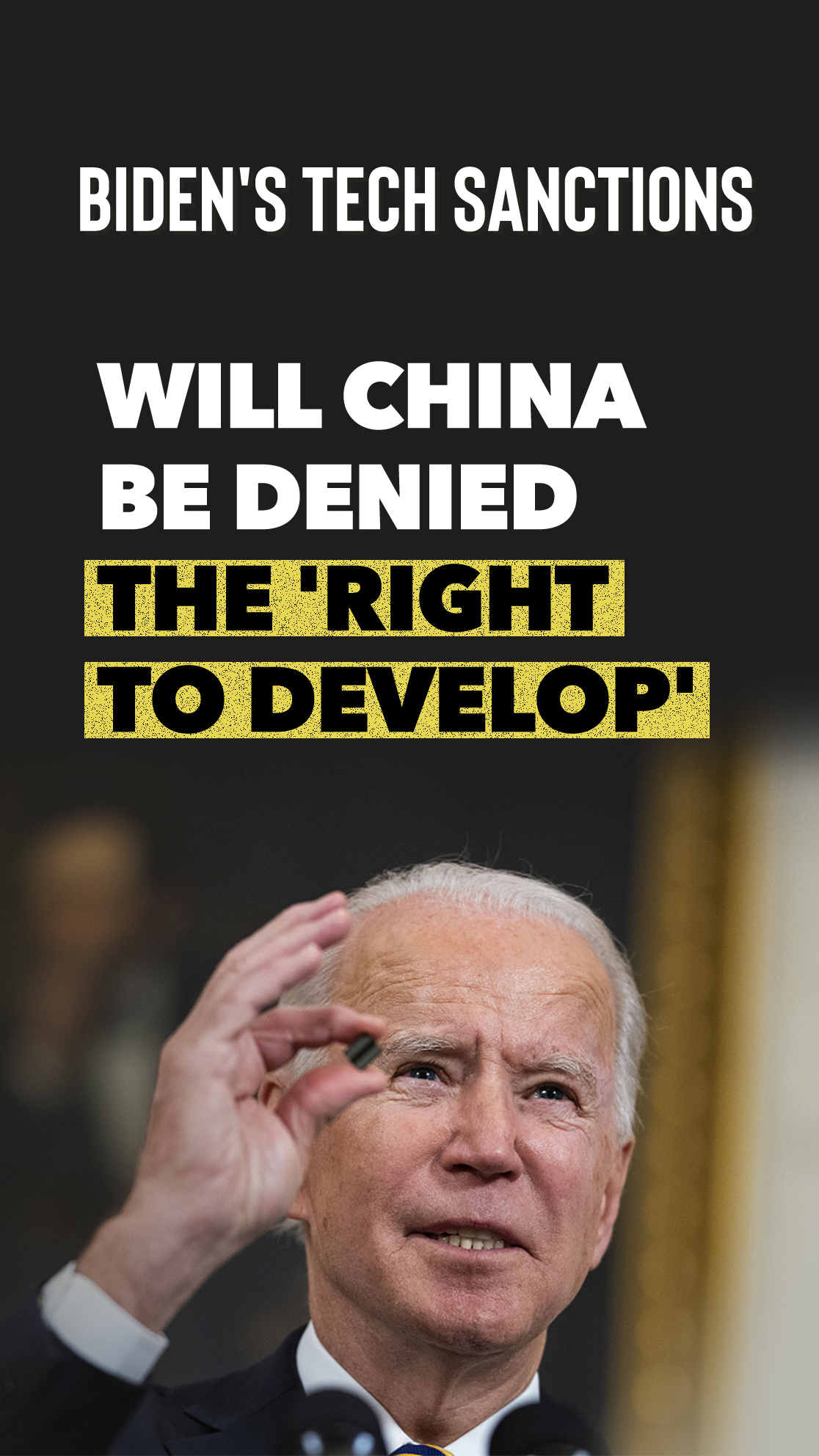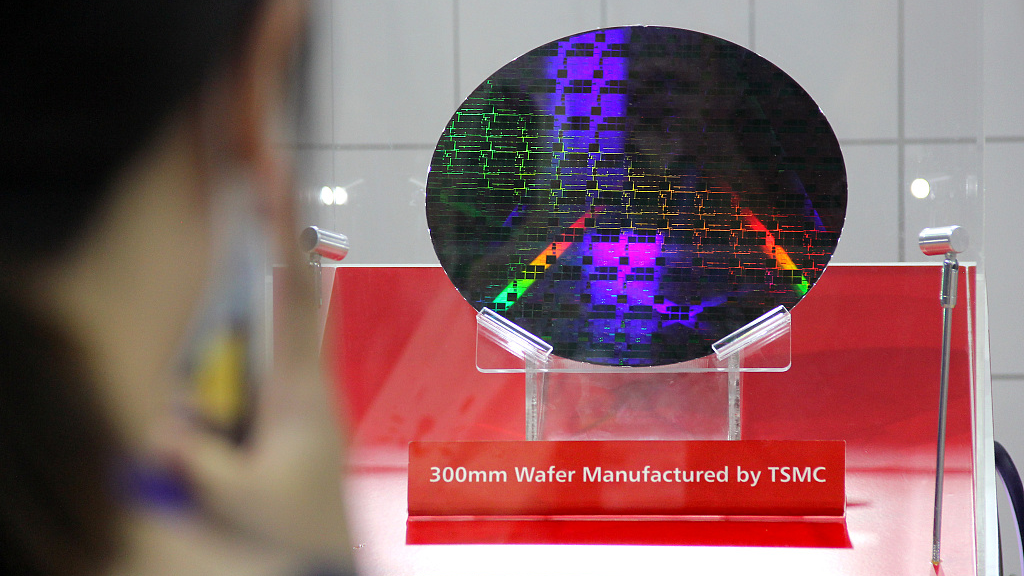03:15

Editor's note: The White House, debating the measure for nearly two years, plans to issue unprecedented rules on investments in China's tech sector around the time of a G7 summit scheduled for May 19. Why has Washington imposed sanctions on China's tech firms for years? Will the sanction war help the U.S. compete in the global chip industry? CGTN Opinions, collaborating with Special Commentator Bradley Blankenship, conducted an interview with Vijay Prashad, America-based Indian Commentator, who shared his opinions on the topic. The views expressed in the video are his own and not necessarily those of CGTN.
CGTN Opinions: What do you make about President Joe Biden's plan to impose new restrictions on investment in China and try to get other countries to join to push the Chinese essentially down technologically?
Vijay Prashad: It would be surprising to learn that Taiwan's one company, TSMC, is the world's largest semiconductor manufacturer and it accounts for about 56 percent of the share of the global market. Inside a smartphone are billions of transistors. Each of them will have a number of semiconductors. Most of them are made in East Asia.
This economic pressure campaign against China, which of course, impacts Taiwan negatively, is going to have a deleterious effect on all the goods and services, and I mean all. Maybe my mug doesn't have a semiconductor. But to make my tea, I have to put on my stove. It has digital platforms and so on, which have semiconductors.
So, the U.S. war around semiconductors is damaging the international economy and will damage it further because it's not going to be easy to pivot away from the semiconductor reliance on Taiwan, South Korea, and so on.

A 300mm TSMC chip wafer is on display at the 2021 World Semiconductor Conference in Nanjing, east China's Jiangsu Province, June 9, 2021. /CFP
A 300mm TSMC chip wafer is on display at the 2021 World Semiconductor Conference in Nanjing, east China's Jiangsu Province, June 9, 2021. /CFP
The more you put pressure on war in the eastern flank of Asia, the more you're going to disrupt the commodity chains around semiconductors.
In fact, the businesses in Taiwan have been complaining saying that this "new Cold War" against China is negatively impacting them.
Now, increasingly companies that rely on these chips are saying "calm down." U.S. Treasury Secretary Janet Yellen came out and said we need to calm down. Finally, some sane voices have appeared in Washington because the facts are against their own policy.
The U.S. can't sit on the top of a tree and say "I'm just going to cut the branches underneath me." Eventually your tree is going to get weakened. You are going to fall.
CGTN Opinions: If you were an average Chinese person, how do you feel that the U.S. want to keep you down or make you poor by doing these things against your country?
Vijay Prashad: China is a threat to sections of the U.S. economy that have become quite complacent and have become in a way rent seekers, like the big tech companies.
They make money not on production. After all, Apple phones are produced in China. They make their money based on their patents, on the rent they collect, on each phone being sold. They are essentially landlords of patents.
Now when the Chinese have made as good, if not better, phones for much cheaper prices, people may not be buying Apple phones, so Apple faces an existential threat.

A technician works at the workshop of a chip production company in Yancheng, east China's Jiangsu Province, April 14, 2023. /CFP
A technician works at the workshop of a chip production company in Yancheng, east China's Jiangsu Province, April 14, 2023. /CFP
That's the reason why the U.S. is trying to impose a pressure on China, saying "stop developing."
But people are like "Sorry, we have the right to develop. We're not going to be told to sit down when we have stood up."
Script editor: Lu Xiaoyi
Video editor: Feng Ran
Cover image designer: Li Jingjie
Producers: Bi Jianlu, Zhang Peijin, Wang Xinyan
Editor in chief: Wang Ying
Supervisor: Ge Jing
(If you want to contribute and have specific expertise, please contact us at opinions@cgtn.com. Follow @thouse_opinions on Twitter to discover the latest commentaries in the CGTN Opinion Section.)